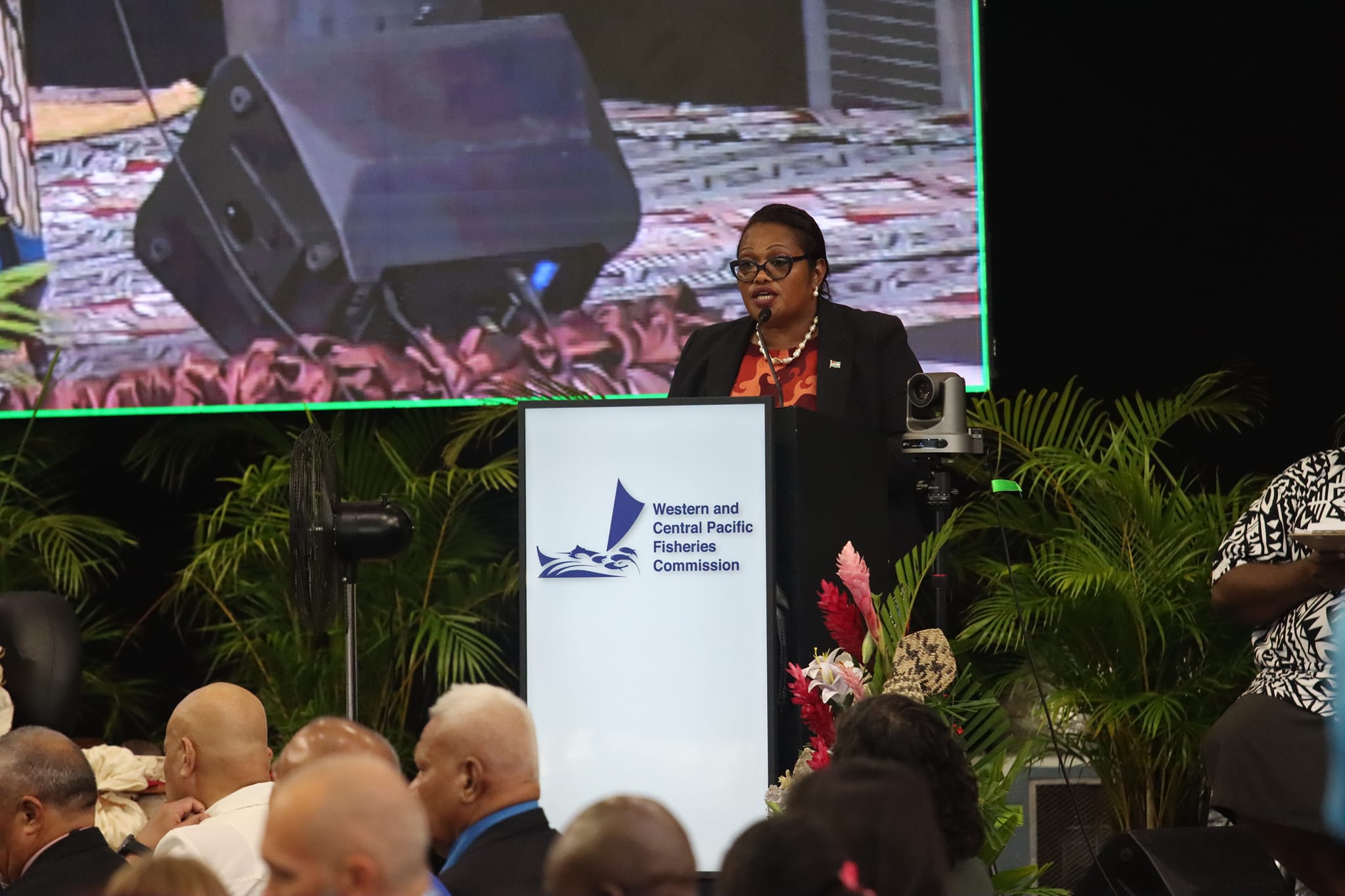Fiji’s Minister of Fisheries, Alitia Bainivalu has stressed the importance of incorporating traditional knowledge and practices into fisheries management strategies at the 21st Western and Central Pacific Fisheries Commission (WCPFC) meeting in Suva, Fiji.
Bainivalu said Pacific Island nations have with the deep relations with the ocean and emphasised the need to learn from ancestral wisdom to ensure sustainable fisheries for future generations.
“Let us also recognise the importance of incorporating traditional knowledge and practices into our fisheries management strategies,” Bainivalu urged.
“The wisdom of our ancestors offers valuable insights that can guide us in navigating the complexities of modern fisheries management.”
While acknowledging the challenges facing the region’s fisheries, including climate change, overfishing, and illegal fishing, Bainivalu also called for collaboration, innovation, and a shared commitment to sustainable practices to overcome these challenges.
The minister also emphasised the importance of sustainable fisheries management for future generations.
“The waters that surround us are not merely a source of livelihood, but are integral to our identity, our traditions and our way of life,” Bainivalu stated.
“It is our duty to ensure that these waters remain vibrant and productive, not just for ourselves, but for future generations.”
The work of the Pacific Islands Forum Fisheries Agency (FFA) is crucial in supporting this goal. The FFA assists its member countries in implementing WCPFC measures and advocating for their interests, ensuring that Pacific nations have a strong voice in the management of tuna, a resource vital to their economies and cultural identity.
Bainivalu concluded by expressing her gratitude for the delegates’ commitment to sustainable fisheries management and her hope for fruitful discussions in the days ahead.














